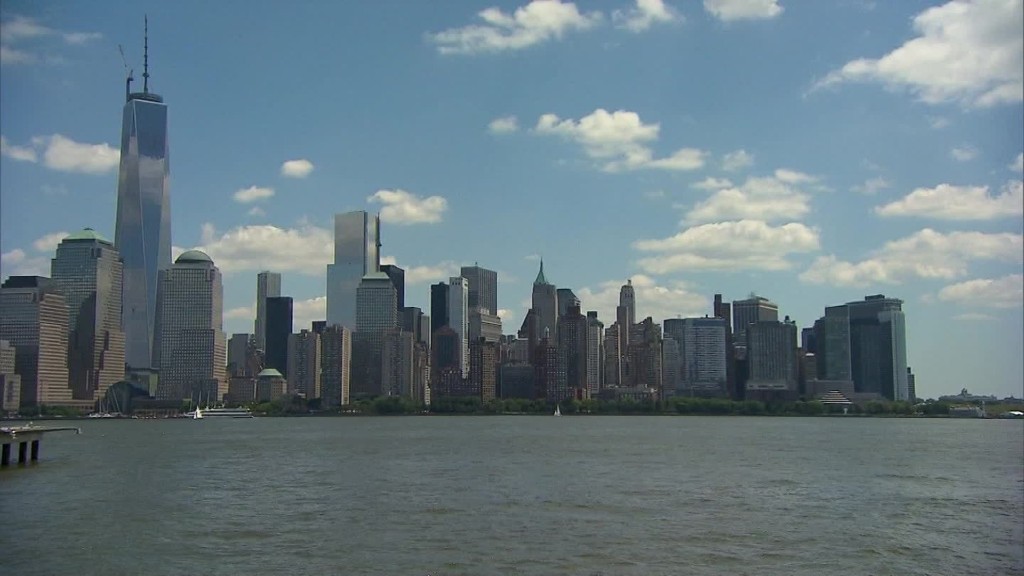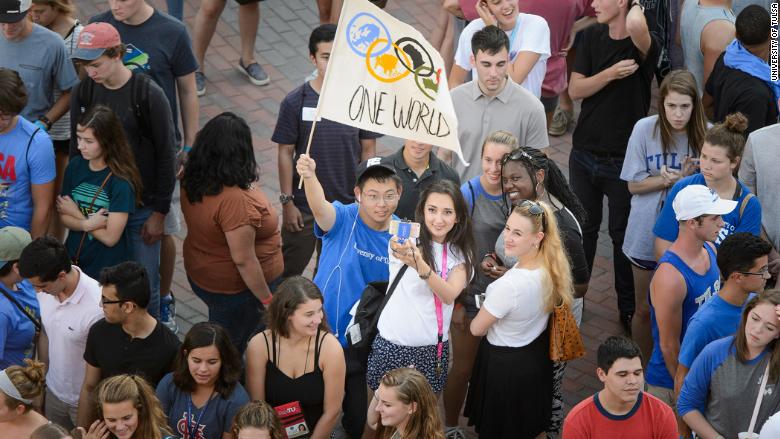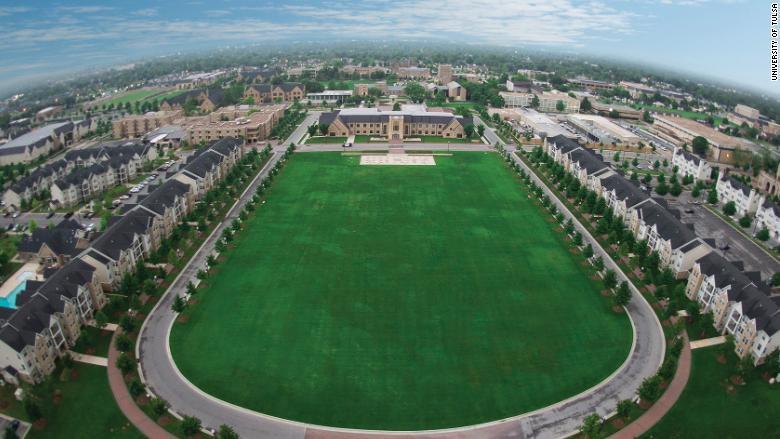
A sharp decline in the number of international student visas has many of America's colleges and universities on edge -- and some say the Trump administration's tough stance on immigration might be partly to blame.
The number of F-1 visas issued to foreign students seeking to attend college and other types of academic institutions in the United States decreased by 17% in the year that ended September 30, 2017, according to recent State Department data.
"The current administration's 'America First' mantra is causing [international students] a great deal of anxiety and fear," said Earl Johnson, vice president of enrollment and student services at the University of Tulsa in Oklahoma. "Also, the cost of college tuition, on average, has gone up 40% in the last 10 years. It's weighing on them."
That's bad news for schools that have large international student populations. Nearly 20% of the University of Tulsa's 4,400 enrolled students hail from overseas.
Johnson said his school has experienced declines in international enrollment for a few years now and it is starting to hurt revenue. The university has even placed a school official in China to recruit more students from overseas.

F-1 visa approvals were trending higher for nearly a decade when they peaked at more than 600,000 in 2015. But they have dropped off dramatically since.
The United States issued a total of 393,573 F-1 visas in fiscal 2017, down from 471,728 in 2016. The government did not release the total number of F-1 visa applications it receives in a given year or how many applications were rejected.
The biggest decline in visa approvals in 2017 was seen among students from Asian countries, particularly those from China and India which typically account for the largest number of F-1 visas.
Related: College tuition is still getting more expensive
A number of factors could be driving the declines, said Allan Goodman, president of the nonprofit Institute of International Education.
While students are evaluating the cost of studying in the US versus somewhere else, they are also tuning in to the political rhetoric on immigration. "Inevitably, it does lead them to ask, 'Will I be welcome here?" said Goodman.

But there are other factors that are also playing a role, he said. In China specifically, a 2014 change in visa policy allows Chinese students to obtain an F-1 visa for a five-year period instead of one, freeing them from having to renew their visa each year. That change alone could contribute to the recent declines, said Goodman.
Worldwide competition for international students is also heating up, he said. The United States used to account for almost half of all international students worldwide. Now about 24% of all international students come here, said Goodman.
Instead, they are going to countries like Canada, Germany and Australia, which are making it easier for international students to stay in the country after they graduate and become part of the workforce.
Related: Despite DACA uncertainty, these Dreamers are still determined to go to college
Meanwhile in the United States, the government's tougher stance on its popular H-1B foreign work visa, a common visa pathway for highly-skilled foreign workers, is making it harder for new graduates to remain in the country and could be deterring overseas students from applying to American colleges.
While neither the law nor any regulations regarding foreign student visas have changed, the State Department said it has revised its guidance to US consulates that review and approve the applications. The agency said it now emphasizes that the consulates "must refuse" any applicants if they are "not satisfied that the applicant's present intent is to depart the United States at the conclusion of his or her study."
"We believe that studying in the U.S. continues to provide the best educational opportunities in the world, introduces international students to networks that provide benefits and advantages well after their studies conclude, and gives graduates a life-long connection to the U.S," a State Department official said.
"Having international students benefits the United States in many areas, in science and technology, even the number of Nobel laureates we produce," said Goodman.
And international students add diversity to the classroom, he added. "Most Americans don't study abroad. At the very least, they get a sense of the outside world from the eight to 10 different nationalities in their classroom," he said.
"It's a fairly uncertain time for all higher education institutions in the US," Johnson said. "Right now we feel the glass is half full. We are seeing a greater number of started applications from students overseas, but we have to wait and see how many complete their applications for the fall."


